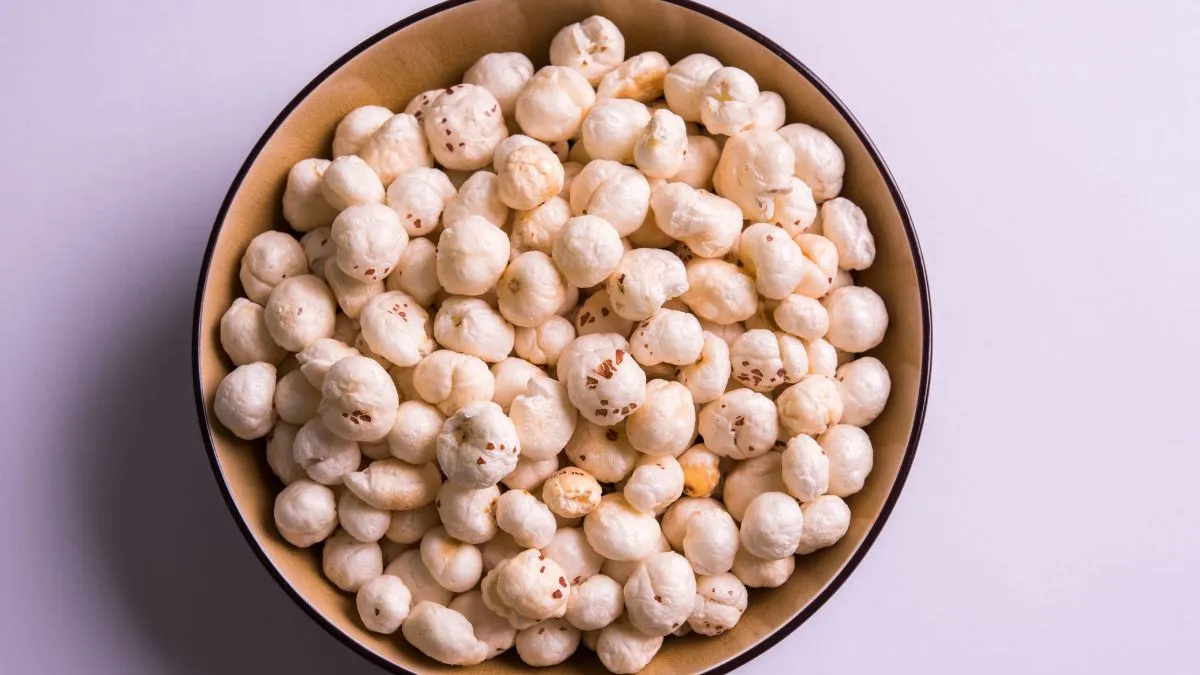Makhana, also known as fox nuts has emerged as a trendy and nutritious snack, celebrated for its impressive array of health benefits. This nutrient-dense superfood boasts an impressive profile of low calories, high fibre and abundant antioxidants and minerals. It contributes to holistic wellness by fostering cardiovascular health, streamlining digestion, and supporting weight management. Furthermore, its gluten-free composition and low glycemic index render it an ideal option for individuals monitoring their blood sugar levels.
Nevertheless, certain individuals should consume makhana with caution due to potential health considerations. While it offers numerous advantages, mindful consumption is essential to reap its benefits while minimising potential risks. Here, we’ve listed five types of people who should not eat makahna or limit its consumption to avoid any health risk.
People Who Should Avoid Makhana
Individuals With Kidney Stones
Individuals with kidney stones should avoid consuming makhana as it is high in oxalate, a compound that can increase the risk of stone formation. Makhana’s high oxalate content can also exacerbate existing kidney stone conditions, leading to severe pain and discomfort.
Individuals With Digestive Disorders
Makhana can be problematic for individuals with digestive disorders such as irritable bowel syndrome (IBS), Crohn’s disease or ulcerative colitis. The high fibre content in makhana can exacerbate digestive issues, leading to bloating, gas and abdominal pain. These individuals should limit their makhana consumption or avoid it altogether.
ALSO READ: Makhana vs Peanuts: Which Snack Helps You Lose Weight Faster?
Allergic Individuals
Some individuals may be allergic to makhana which can cause a range of symptoms including hives, itching, swelling, stomach cramps and diarrhoea. If you experience any of these symptoms after consuming makhana, it’s essential to seek a healthcare professional.
Who should avoid eating makhana? (Image Credits: Canva)
Individuals With Gout Or High Uric Acid Levels
Its high purine content can elevate uric acid levels in the body, posing a concern for individuals with gout or hyperuricemia. To avoid aggravating their condition, it’s essential for these individuals to consume makhana in moderation.
ALSO READ: Here’s Why You Should Eat Ghee Roasted Makhana As An Evening Snack
Individuals On Blood Thinning Medications
Makhana is rich in vitamin K which can interfere with blood-thinning medications such as warfarin. Individuals taking these medications should limit their makhana consumption to avoid reducing the effectiveness of their medication.
Disclaimer: This content, including suggestions and advice, provides generic information only. It is in no way a substitute for qualified medical opinion. Always consult a specialist or your own doctor for more information before making any drastic changes in your lifestyle.
